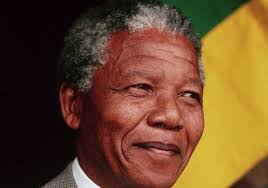 “Mandiba” was his clan name. It became a term of endearment for those who got to know him. He was a revolutionary who weaved his way through the politics of militant whites and blacks, communists and socialists. He somehow bridged the gaps between what the white liberal establishment in America wanted him to be and what the angry oppressed population of South Africa needed him to be. He overcame all of these through the concept of forgiveness. He actually brought to the polical sphere the concept of confession and absolution. South Africa is an interesting and difficult place today, but it is a better place because of him.
“Mandiba” was his clan name. It became a term of endearment for those who got to know him. He was a revolutionary who weaved his way through the politics of militant whites and blacks, communists and socialists. He somehow bridged the gaps between what the white liberal establishment in America wanted him to be and what the angry oppressed population of South Africa needed him to be. He overcame all of these through the concept of forgiveness. He actually brought to the polical sphere the concept of confession and absolution. South Africa is an interesting and difficult place today, but it is a better place because of him.
Today I have listened to all the politicos talking and person after person has said almost the same thing at one point. The most remarkable aspect of Nelson Mandela was that after becoming the President of the country he left the office after 5 years. He didn’t try and make himself supreme leader, or President for life, or hold onto the office which all of the commentators find impossible to understand. That tells us something about Mandela. It tells us more about the commnetators.
He was a Methodist. In his autobiography, Long Walk to Freedom, Mandela tells the story of his early engagement with Christianity. Those of us interested in Mission work should pay attention. “The Church was as concerned with this world as the next: I saw that virtually all of the achievements of Africans seemed to have come about through the missionary work of the Church.” As a result, Mandela became a member of the Students Christian Association and taught Bible classes on Sundays in nearby villages.
My friend John Nunes found this quote –

